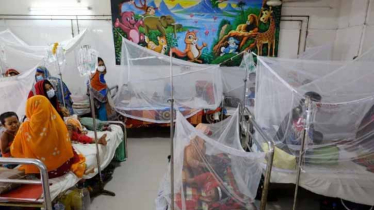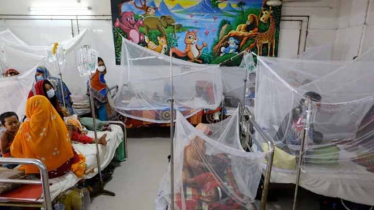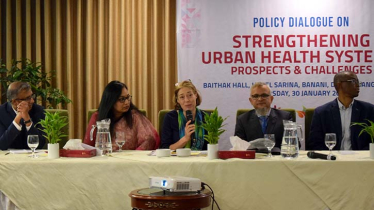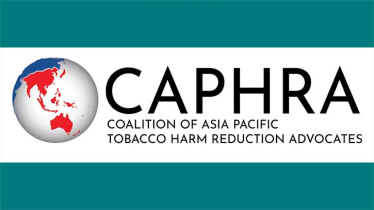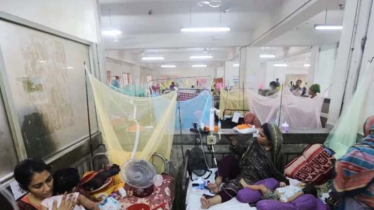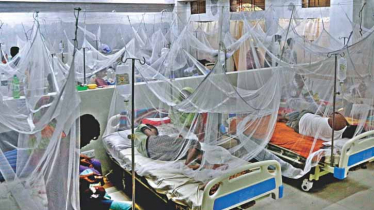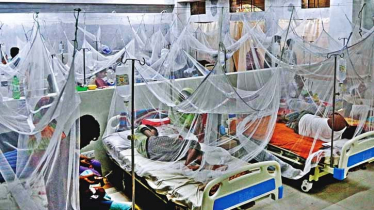
Photo : Collected
As the country faces a surge of deaths during the monsoon season, the City Corporations (CC) are engaged in a blame game, accusing the public of spreading dengue, which is rapidly becoming an epidemic.
The city corporations claim to have year-round awareness programs for dengue control, but the residents are unaware of them.
Meanwhile, Transparency International Bangladesh (TIB) expressed its disappointment on Saturday regarding the efforts of the two city corporations to prevent dengue in Dhaka.
TIB has repeated its 15-point suggestions from its research report on ‘Challenges of good governance and ways to overcome Aedes mosquito control in Dhaka city,’ published on September 25, 2019. It has asked for an integrated roadmap to be made and followed by all stakeholders, including Dhaka North and South City Corporation.
Dr. Iftekharuzzaman, TIB's executive director, said, "The situation is alarming; we gave warnings, but the two city corporations' actions to stop dengue in the capital are unsatisfactory."
He also said that the authorities did not have any long-term or coordinated plans to stop dengue, and they ignored the research-based policy briefs and did not consult experts in the relevant fields.
On the other hand, entomologists recommend involving the community in year-round dengue prevention efforts since the disease claims lives every day.
"Community engagement and mosquito control programmes can help contain dengue, which may become an epidemic this year," said Dr. Md. Abdul Latif, Professor of Entomology at Sher-e-Bangla Agriculture University, told The Daily Messenger.
According to the Directorate General of Health Services (DGHS), as of Saturday morning, 67 people, mostly children, have died, and 820 more have been hospitalised with the viral fever.
Currently, a total of 2,502 dengue patients, including 1,773 in Dhaka, are undergoing treatment at hospitals across the country. The DGHS has recorded 12,118 dengue cases and 9,549 recoveries this year.
Given the increasing number of affected people across the country, the Dhaka North City Corporation (DNCC) has deployed drones to identify mosquito breeding sites, especially on rooftop gardens of houses.
DNCC Chief Executive Officer Selim Reza said that a month-long programme to expedite the ongoing fight against Aedes mosquitoes started on Saturday. The programme aims to identify accumulated water on rooftops.
According to Makbul Hossain, the public relations officer and spokesperson of DNCC, they are working on public awareness through activities like using microphones and distributing leaflets to the people.
During a surprise visit to a housing project, DNCC Mayor Atiqul Islam found the presence of Aedes mosquitoes and scores of larvae in stagnant water in the basement floors of several multi-storied buildings.
Opposition party leaders claimed that every year the burden of taxes is imposed on the citizens of the city, but no measures are taken to control mosquitoes. They called for immediate action to protect the city dwellers from Aedes mosquitoes.
To stop dengue from spreading more, the government has given five rules for educational institutions, especially primary and secondary schools, that are opening again today after the Eid-ul-Azha break.
The Directorate of Secondary and Higher Education (DSHE) sent the rules on Saturday. They told educational institutions to clean their buildings and playgrounds well to stop dengue.
DSHE also told the principals and education officers of all public and private educational institutions about the rules.
DSHE said that dengue is in Dhaka city and other places in the country, and educational institutions have to be careful. Dengue comes from mosquitoes, and they can grow in water that stays in school playgrounds, buildings, and flower pots. So, all educational institutions in the country have to follow the rules after the Eid-ul-Azha holiday.
DSHE's five instructions are as follows: 1) Regularly keep the playgrounds and school-college buildings clean, 2) Remove any accumulated water in the playgrounds or buildings as soon as possible, 3) Regularly clean flower tubs used for beautification of educational institutions, 4) Ensure that water does not accumulate in areas where Aedes mosquitoes breed, and 5) Provide students with daily instructions on ways to prevent dengue.
TDM/SD

